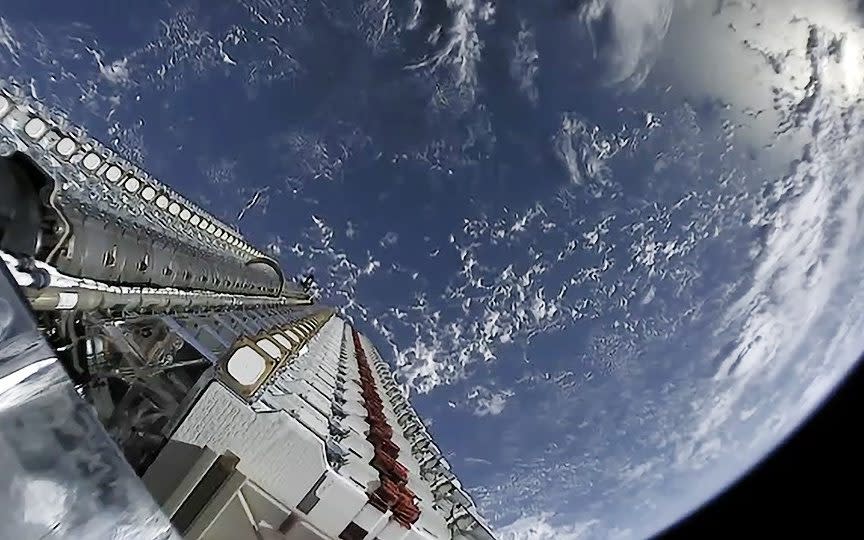Elon Musk's Starlink targets global broadband coverage by September

Elon Musk’s Starlink is targeting global coverage from its satellite broadband network by September as it attempts to overtake rivals including Amazon and Britain’s OneWeb.
Gwynne Shotwel, president of SpaceX, said its 1,800 satellites should be able to provide continuous coverage.
It is targeting a total of 12,000 satellites at a cost of $10bn (£7.2bn), which orbit at a height of 340 miles above the earth.
Starlink’s beta version of its broadband service is available in 11 countries. The satellite company will still need regulatory approval for its system as it enters new markets.
Ms Shotwel told a conference in Australia: “We’ve successfully deployed 1,800 or so satellites and once all those satellites reach their operational orbit, we will have continuous global coverage. So that should be like a September timeframe.”
Starlink offers a trial service in the UK costing £89 a month, but users need a £439 satellite dish to receive its signal.
Users have reported speeds in excess of 100 megabits per second from the service, which is aimed at plugging holes in rural broadband. Starlink claims to have 700,000 people who have registered their interest for the service and over 10,000 current customers.
Later this year, Starlink will face competition from OneWeb, which is backed by the Government following its rescue from bankruptcy last year.
OneWeb plans to launch a commercial service covering the North Pole to the 50th parallel by the end of the year using its 218 satellites.
US regulators are facing legal challenges from rivals to Starlink over a decision to approve new launches for its satellite system.
Viasat, the US satellite company, has sued the Federal Communications Commission over the environmental implications of SpaceX’s vast constellation.
SpaceX accused Viasat of using environmental rules as “weapons of commercial warfare”.
Compare broadband in my area
